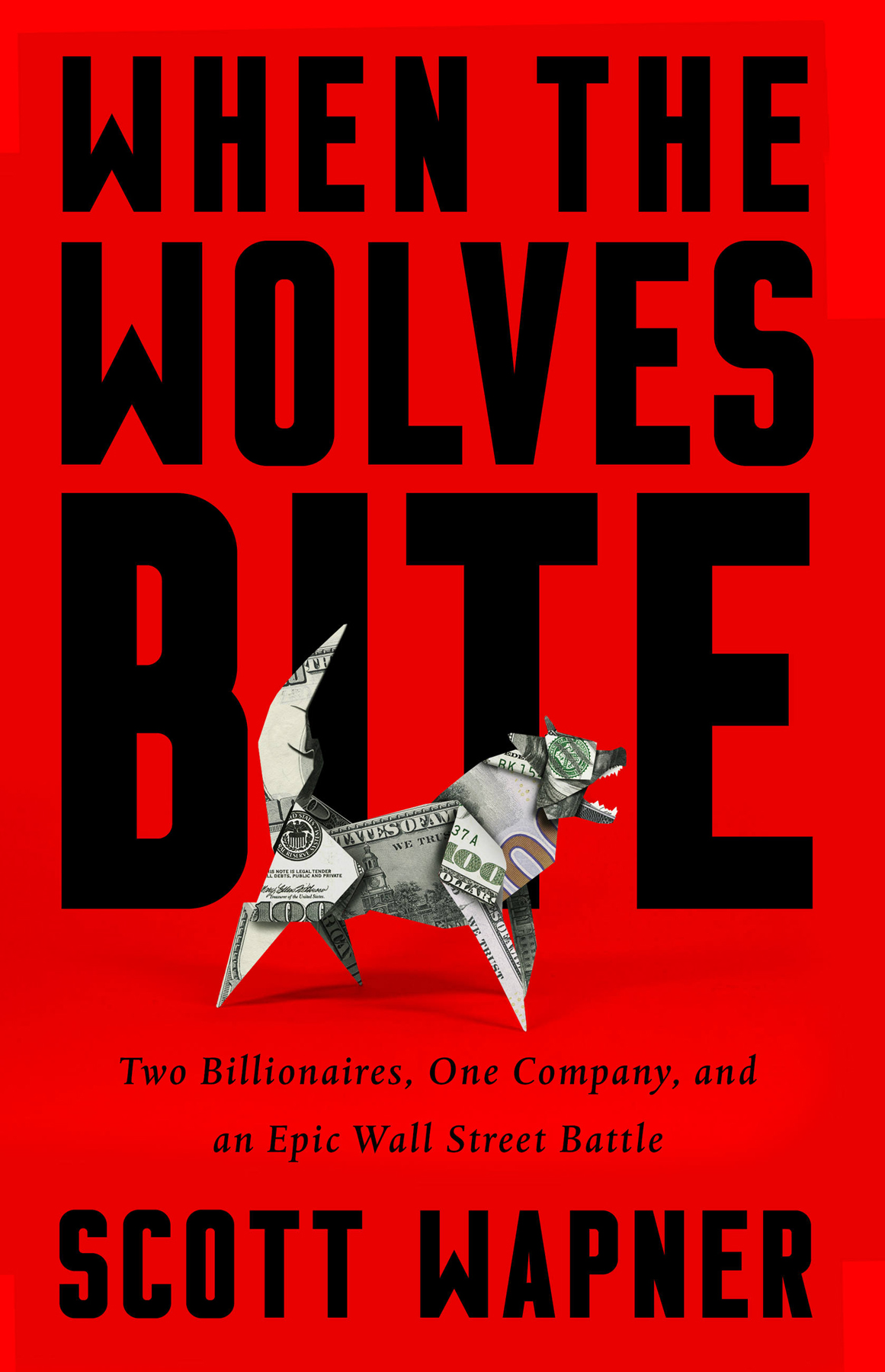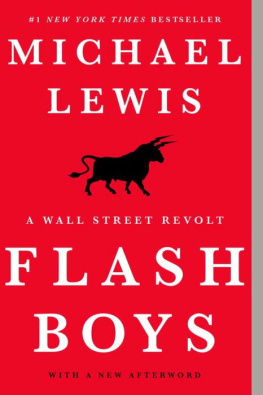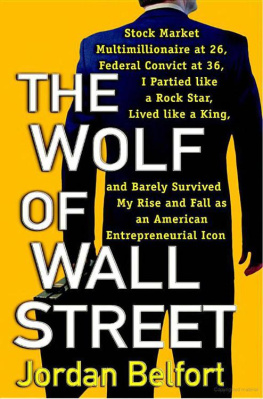Scott Wapner - When the Wolves Bite: Two Billionaires, One Company, and an Epic Wall Street Battle
Here you can read online Scott Wapner - When the Wolves Bite: Two Billionaires, One Company, and an Epic Wall Street Battle full text of the book (entire story) in english for free. Download pdf and epub, get meaning, cover and reviews about this ebook. year: 2018, publisher: PublicAffairs, genre: Detective and thriller. Description of the work, (preface) as well as reviews are available. Best literature library LitArk.com created for fans of good reading and offers a wide selection of genres:
Romance novel
Science fiction
Adventure
Detective
Science
History
Home and family
Prose
Art
Politics
Computer
Non-fiction
Religion
Business
Children
Humor
Choose a favorite category and find really read worthwhile books. Enjoy immersion in the world of imagination, feel the emotions of the characters or learn something new for yourself, make an fascinating discovery.

- Book:When the Wolves Bite: Two Billionaires, One Company, and an Epic Wall Street Battle
- Author:
- Publisher:PublicAffairs
- Genre:
- Year:2018
- Rating:4 / 5
- Favourites:Add to favourites
- Your mark:
- 80
- 1
- 2
- 3
- 4
- 5
When the Wolves Bite: Two Billionaires, One Company, and an Epic Wall Street Battle: summary, description and annotation
We offer to read an annotation, description, summary or preface (depends on what the author of the book "When the Wolves Bite: Two Billionaires, One Company, and an Epic Wall Street Battle" wrote himself). If you haven't found the necessary information about the book — write in the comments, we will try to find it.
Scott Wapner: author's other books
Who wrote When the Wolves Bite: Two Billionaires, One Company, and an Epic Wall Street Battle? Find out the surname, the name of the author of the book and a list of all author's works by series.
When the Wolves Bite: Two Billionaires, One Company, and an Epic Wall Street Battle — read online for free the complete book (whole text) full work
Below is the text of the book, divided by pages. System saving the place of the last page read, allows you to conveniently read the book "When the Wolves Bite: Two Billionaires, One Company, and an Epic Wall Street Battle" online for free, without having to search again every time where you left off. Put a bookmark, and you can go to the page where you finished reading at any time.
Font size:
Interval:
Bookmark:

Copyright 2018 by Scott Wapner
Hachette Book Group supports the right to free expression and the value of copyright. The purpose of copyright is to encourage writers and artists to produce the creative works that enrich our culture.
The scanning, uploading, and distribution of this book without permission is a theft of the authors intellectual property. If you would like permission to use material from the book (other than for review purposes), please contact permissions@hbgusa.com. Thank you for your support of the authors rights.
PublicAffairs
Hachette Book Group
1290 Avenue of the Americas, New York, NY 10104
www.publicaffairsbooks.com
@Public_Affairs
First Edition: May 2018
Published by PublicAffairs, an imprint of Perseus Books, LLC, a subsidiary of Hachette Book Group, Inc. The PublicAffairs name and logo is a trademark of the Hachette Book Group.
The publisher is not responsible for websites (or their content) that are not owned by the publisher.
A catalog record for this book is available from the Library of Congress.
ISBNs: 978-1-61039-827-5 (hardcover), 978-1-61039-828-2 (ebook)
E3-20180316-JV-PC
T his book would not have happened without the gracious cooperation of the three major parties involved in this storyCarl Icahn, Bill Ackman, and, of course, Herbalifes now former CEO, Michael Johnson. All agreed to speak on the record about their roles. Some of the events depicted have not been reported until now, a testament to the commitment each of the players, and others, made to the integrity of the story. In some places, youll notice direct quotes that were taken from the many hours of interviews I conducted with each participant. In other instances, quotes or specific events and dates are utilized from the overwhelming amount of information available from public sources; these are thus footnoted. Other facts are taken from direct conversations with the key parties or those close to the story. Im grateful for their support of this project.
N ot since the Rockefellers and Vanderbilts has one group of investors exerted more influence on Wall Street than does the current class of financiers known as shareholder activists.
This class of super-investors, which includes Carl C. Icahn, William A. Ackman, Daniel S. Loeb, Nelson Peltz, and others, is defined by an interest not just in owning a piece of a company, but also in using their influence and money to change the way it operates. And no company, large or small, is beyond their reach. Apple, PepsiCo, Yahoo, DuPont, JC Penney, and Macys are among the businesses that have been targeted in recent years.
While the 1970s and 1980s marked the rise, dominance, and ultimate fall of the corporate raiders, arbitrageurs, and junk bond kings of the day, during the current Era of the Activist, barely a week goes by without one of the aforementioned financiers revealing a stake in a companys stock and an ambitious plan to propel it higher.
Activism isnt just proliferatingits exploding.
In 2012 there were seventy-one activist campaigns with a total of $12 billion invested, according to the new regulatory filings with the Securities and Exchange Commission. By 2015 the numbers had surged to eighty-three filings totaling nearly $31 billion and counting. As the number of dollars has grown, so has the size of the targets, with the average market caps of their companies increasing from more than $2.3 billion in 2012 to nearly $6 billion in 2015.
As a finance reporter, this exclusive, iconoclastic world is an obsession for me. It has been ever since January 25, 2013, when Icahn and Ackman engaged in a wild, intensely personal war of words on live television and brought Wall Street trading to a sudden standstill.
Consider the moment: Here were two billionaires hurling insults while the world watched and trading stopped. CEOs from Davos to Dallas dropped what they were doing to watch it. It was a moment in timeorganic, bizarre, and completely unplanned. I should knowI was hosting the live TV show when it happened.
The rise of shareholder activism and the power of these new Masters of the Universe are equally as stunning. Ten years ago, activist hedge funds had less than $12 billion under management. Today, its more than $120 billion, with more than ten funds now managing more than $10 billion each.
Why? Some cite the ongoing bull marketthe raging rally of stocks since post-crisis 2008as the catalyst. Companies were flush with cash and could borrow it at record low interest rates, and shareholders were hungry for a bigger piece of that pie. Enter the shareholder activist to get it for them, typically using a familiar playbookusually a spin-off, share-buyback, or cost-cutting initiativealways in the name of unlocking more value for all shareholders.
There is also a case to be made that activism as a technique has become popular because in many cases it has worked. Big investors with big ideas and big names driving share prices higher while forcing CEOs to maximize returns for their shareholdersor else.
The activist aggregator, 13D Monitor, found that between 2006 and 2011 the average one-day bump for a stock once an activist had revealed their position was 2.65 percent, with the average return over fifteen months reaching 15.24 percent, dramatically outperforming the payout of the S&P 500 over the same time frame.
But do those gains come at a cost?
Leo E. Strine, the influential Chief Justice for the Delaware Supreme Court, wrote about activist hedge funds in February 2017s Yale Law Journal in his 133-page paper titled Who Bleeds When the Wolves Bite? A Flesh-and-Blood Perspective on Hedge Fund Activism and Our Strange Corporate Governance System. There is less reason to think (activists) are making the economy much more efficient, and more reason to be concerned that they are perhaps pushing steady societal wealth on a riskier course that has no substantial long-term upside, he suggested.
Distinguishing between so-called human investorsthose of us who save for college or retirementand the wolf packs of activist hedge funds who attempt to instill change in a corporation, Strine argued,
What is commonly accepted about activist hedge funds is that they do not originally invest in companies they like and only become active when they become dissatisfied with the corporations management or business plan. Rather, activists identify companies and take an equity position in them only when they have identified a way to change the corporations operations in a manner that the hedge fund believes will cause its stock price to rise. The rise that most hedge funds seek must occur within a relatively short time period, because many activist hedge funds have historically retained their position for only one to two years at most.
Judge Strine is not alone in his criticism of the perceived short-term nature of activists. Jeffrey A. Sonnenfeld, Senior Associate Dean of Leadership Studies at the Yale School of Management, argues that too often activists pressure companies to cut costs, add debt, sell divisions and increase share repurchases, rather than invest in jobs, R&D and growth, and that any value created by activists is often short-lived and sometimes comes at the expense of long-term success, if not survival.
Others lament the activist classs herd mentalitytoo much money chasing too few good ideas. Laurence D. Fink, the noted and outspoken CEO of the worlds largest asset manager, Blackrock, decries the quick-fix approach as damaging to the corporate structure at large. In February 2016, in a letter sent to hundreds of chief executives, he urged them to focus on long-term value creation rather than on buybacks and other initiatives.
Font size:
Interval:
Bookmark:
Similar books «When the Wolves Bite: Two Billionaires, One Company, and an Epic Wall Street Battle»
Look at similar books to When the Wolves Bite: Two Billionaires, One Company, and an Epic Wall Street Battle. We have selected literature similar in name and meaning in the hope of providing readers with more options to find new, interesting, not yet read works.
Discussion, reviews of the book When the Wolves Bite: Two Billionaires, One Company, and an Epic Wall Street Battle and just readers' own opinions. Leave your comments, write what you think about the work, its meaning or the main characters. Specify what exactly you liked and what you didn't like, and why you think so.





